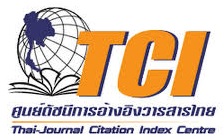Current Problems and Need Condition of Teacher Leadership at Teacher Training Colleges, Lao People’s Democratic Republic
DOI:
https://doi.org/10.55766/CMCI4786Keywords:
Teacher Leadership, Current Problems, Need Condition and Assessment, Priority NeedAbstract
This research aimed to 1) study current problems and need condition of teacher leadership at Teacher Training Colleges, Lao People’s Democratic Republic and 2) study need assessment of teacher leadership at Teacher Training Colleges, Lao PDR. The sample size was 981 teachers and directors from 8 Teacher Training Colleges of Lao PDR obtained through simple random sampling. The instrument was 5 point rating questionnaire used to survey current problems and need condition of teacher leadership and statistically analyzed in mean score, standard deviation, and priority need index (PNI).
The results revealed that 1) Current problem and need condition of teacher leadership at Teacher Training Colleges in Lao PDR were found at the height in every factor. 2) Need assessment of teacher leadership at Teacher Training Colleges in Lao PDR could be rated by priority need index in descending order as follows (1) instructional proficiency, (2) knowledge about students, (3) self and colleague development, (4) development participation, (5) behavior and conduct, and (6) transformational leader, respectively.
References
Crowther, F., Kaager, S., Ferguson, M., & Hann, L. (2002). Developing teacher leaders: How teacher leadership enhances school success. Thousand Oaks, CA: Crowin Press.
Darling-Hammond, L., Bullmaster, M. L., & Cobb, V. L. (1995). Rethinking teacher leadership through professional development schools. The Elementary School Journal. 87-106.
Devaney, k. (1987). The lead teachers: ways to begin. Paper prepared for the task force on teaching as a profession, Carnegie Forum on Education and the Economy.
Feiler, R., Heritage, M., & Gallimore, R. (2000, April). Teachers leading teachers. Educational Leadership. 57(7): 66-69.
Frost, D., & Durrant, J. (2003 a, May). Teacher leadership: Rationale, strategy, and impact. School Leadership & Management. 23(2): 173-186.
Hinchey, P. (1997). Teacher Leadership: Introduction. The Clearing House. 70(5): 233.
Howey, K. R. (1988). Why Teacher Leadership?. Journal of Teacher Education. 39(1): 28-31.
Intharath, K., & Vongsavat, S. (2016). (Interview). Salavan, dated 11/04/2016.
Johnson, J., & Hynes, M. C. (1997, Fall). Teaching/learning/leading: Synonyms for change. Action in Teacher Research. 19(13): 107-119.
Blasé, J., & Blass, J. (1999). Effective Instructional Leadership: Teacher Perspectives on How Principals Promote Teaching and Learning in School. University of Georgia.
Katzenmeyer, M., & Moller, G. (2001). Awakening the sleeping giant: Helping teacher leaders develop as leaders. Thousand Oaks, CA: Corwin Press.
LeBlanc, P. R., & Shelton, M. M. (1997, Fall). Teacher leadership: The needs of teachers. Action in Teacher Education. 19(3): 32-48.
Laiwatcharagul, C. (2004). The Development of Instructional Leadership Training Curriculum for School Principals. Dissertation of Doctor of Philosophy. Khon Kaen University.
Leithwood, K. & Duke, D. (1999). A century quest to understanding school leadership. San Francisco: Jossey Bass.
Livingston, C. (1992). Teacher leadership for restructured schools. Teachers as leaders: Evolving roles. 9-17. Washington, DC: National Education Association.
Miller, L. (1988). Teacher Leadership in a renewing school. In C. Livingston (Ed.), Teacher as leaders: Evolving roles (pp. 115-130). Washington, DC: National Education Association.
Ministry of Education and Sports. (2000). Educational Development Vision up to 2020. Vientiane, Lao PDR. Ministry of Education and Sports. (2010). The Minister’ Decree titled Teachers’ Standard Utilization, number 1232/MoE, dated 03/06/2010. (Document). Vientiane. Lao PDR.
Ministry of Education and Sports. (2012). The Minister’s Decree titled Teacher Production Philosophy in Laos. (Document). Vientiane. Lao PDR.
Ministry of Education and Sports. (2015). The Minister’s Decree titled Lao Teachers’ Behavior and Ethics, number 1728/MoE, dated 06/05/2015. (Document). Vientiane. Lao PDR.
National Assembly. (2016). The Report of Vision up to the year 2030: The Ten-Year Economic Development Strategy (2016-2025) and the Five-Year Socio-Economic Development Plan (2016-2020) to the Tenth Party Meetings presented by excellency Thongsing Thammavong, a Central Committee of the Lao People’s Revolutionary Party on January 18, 2016. Vientiane Capital: National Assembly.
Ratchapat, A. (2011). A Development of Teacher Leadership Indicators for Basic Education School. Dissertation of Doctor of Philosophy. Khon Kaen University.
Runcharoen, T. (2010). Professional in Management of Educational Reform Period. Bangkok: Khaofang.
Salavan Teacher Training College. (2015). The Teaching and Learning Report for Academic Year 2014-2015. (Document). Salavan. Lao PDR.
Sergiovanni, T. J. (2005). Leadership: What’s in it for schools?. London: Routledge.
Smylie, M. A., & Denny, J. W. (1989). Teacher leadership: Tensions and ambiguities in organizational perspective. Educational Administration Quarterly. 26(3): 235-259.
Srisa-ard, S. (2010). The introduction to research. 7th. Bangkok: Viriyasaln Printing.
Suranna, K.J., & Moss, D.M. (2002). Exploring teacher leadership in the context of teacher preparation. Paper presented at the annual meeting of the Educational Research Association, New Orlean, LA.
Troen, V. and Boles, K. (1992). Leadership from the Classroom: Women Teachers as the Keyto School Reform. Paper Presented at the Annual Meeting of the American Educational Research Association, San Francisco, CA, April 1992.
Viphavan, P. (2015). Speech on occasion of the opening of the new Academic Year 2015-2016. (Document). Vientiane.
Vongvanich, S. (2015). Research and Evaluation Development at Educational Institutes. Bangkok: Office of the National Education Commission.
Walters, S., & Guthro, C. (1992). Leading, learning, and leaving. In C. Livingston (Ed.), Teachers as leaders: Evolving roles (pp. 131–155).Washington, DC: National Education Association.
Wasley, P. A. (1991). Teachers who lead: The rhetoric of reform and the realities of practice. New York: Teachers College Press.
Wasi, P. (2002). New Methodology of Human Development for Sustainable Future. Bangkok: Mochaoban.
Downloads
Published
Issue
Section
License
Copyright (c) 2019 Suranaree Journal of Social Science

This work is licensed under a Creative Commons Attribution-NonCommercial-NoDerivatives 4.0 International License.









 ThaiJO
ThaiJO